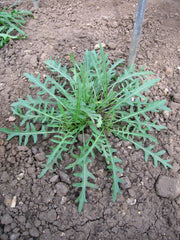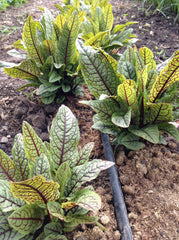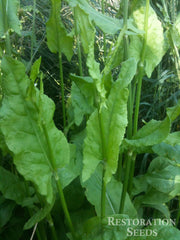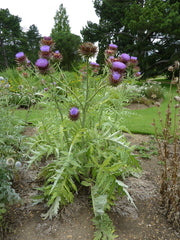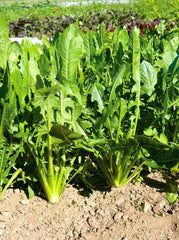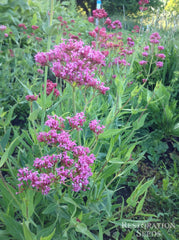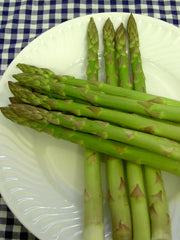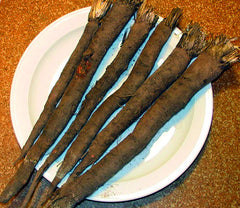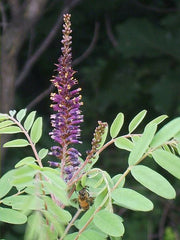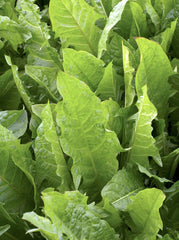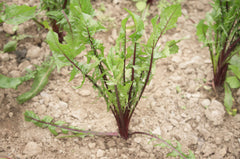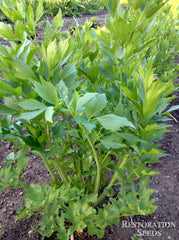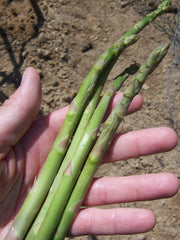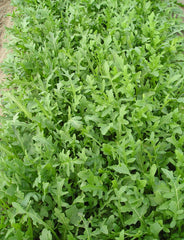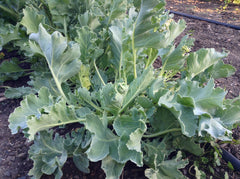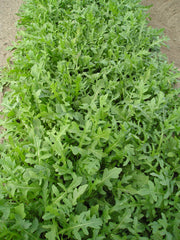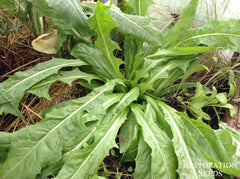Aronia Berry
HOW TO GROW ARONIA
Aronia can be easily propagated from seed. The seed will need to be cold stratified for at least 12 weeks, easily done outdoors in pots, or also kept in the refrigerator. Sow seeds 1/8”-1/4” deep. Keep seedlings moist, and plan to grow them in pots for at least 2 years before planting them in the ground. Seedlings can be potted up into larger pots as they grow over 2 years. Once plants are established, they tolerate a range of soil conditions and sun exposure. They thrive in full sun or partial shade, and do well in moist, well drained soil, or in drier conditions. Soil pH 5-8.5. Hardiness zones 3-9. .
Planting Depth 1/8"
Plant Spacing 6’
Row Spacing 10’
Full Sun, Moist Well Drained Soil
Planting Depth 1/8"
Plant Spacing 6’
Row Spacing 10’
Full Sun, Moist Well Drained Soil
- 30 Seeds$5.50
Aronia is a medium sized shrub that can fit well into most gardens, orchards, or even used as hedgerows. They are incredibly cold hardy, but can also thrive and fruit in the hot summer. In the spring, the clusters of small white flowers are beautiful, and in the fall the leaves turn a gorgeous reddish orange. The fr...
Aronia is a medium sized shrub that can fit well into most gardens, orchards, or even used as hedgerows. They are incredibly cold hardy, but can also thrive and fruit in the hot summer. In the spring, the clusters of small white flowers are beautiful, and in the fall the leaves turn a gorgeous reddish orange. The fruiting berries are prolific once the shrub is established. Not only are the dark black purple berries an incredible source of antioxidants, but they are also high in pectin, which aids digestion and gastro-intestinal health. After harvesting the berries, they tend to stay firm and not spoil unlike other ripe berries. Use the berries to make wine, juice, jam, or cook into baked goods as a blueberry substitute (muffins, pancakes, bread). Berries can be dried or frozen too for preservation. Flavor is somewhat astringent when eaten raw, so best processed with other ingredients in a recipe. Also known as chokeberry. Tags: Harvest: Late, Color: Purple Black, Size: Large, Specialty: Heavy Producer, Season: Summer, Fall.
The genus name for “Aronia” comes from the Greek word “aria”, which translates to the species “Sorbus”, a plant with fruit similar to Aronia. The species name “melanocarpa” can be broken down into “melano”, meaning black in Greek, and “carpo”, meaning fruit. This species of Aronia is native to eastern North America, from Canada to the central US, as far west as Minnesota and Ontario, and as far south as Arkansas, Alabama, and Georgia.
The genus name for “Aronia” comes from the Greek word “aria”, which translates to the species “Sorbus”, a plant with fruit similar to Aronia. The species name “melanocarpa” can be broken down into “melano”, meaning black in Greek, and “carpo”, meaning fruit. This species of Aronia is native to eastern North America, from Canada to the central US, as far west as Minnesota and Ontario, and as far south as Arkansas, Alabama, and Georgia.
Learn More
Meet Your Farmer
We promote fair trade, organic practices and environmental responsibility throughout the Restoration Seeds supply chain. Below are the family farmers and seed suppliers who bring our open pollinated seeds to you.
Homestead Culture
Conventional
Seed grower since 2018

Homestead Culture is a small family homestead in Southern Oregon offering seeds for gardening enthusiasts, homesteading and permaculture. We focus on seeds for perennial foods, flowers, herbs and wild plants that offer abundant nourishment and beauty to our gardens, homes and hearts. As busy homesteaders we often look to embrace plants that are reliable, resilient, multi-talented and produce abundantly. It is the seeds from these, our mainstay plants, that we are honored and excited to share with you. We wish you many blessings both in and out of the garden!
Reviews
